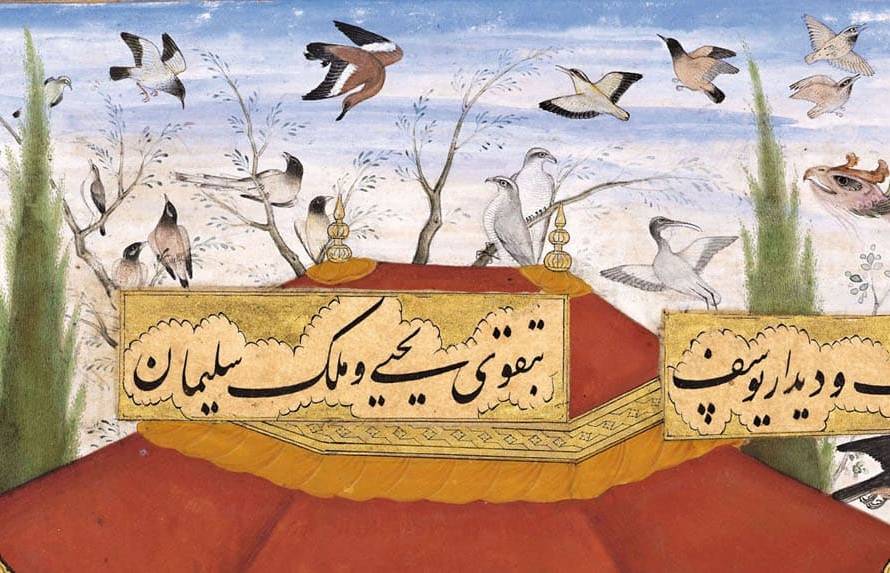*This is a preliminary and test material with the objective to show the graphic proposal, the presentation of what we propose and the contents of the “Búsquedas” Magazine.
LA PHILOCALIE. Les Écrits Fondamentaux des Pères du Désert aux Pères de l’ Église (IV – XIV Siècles) . Descleé de Brouwer. J.C. Lattes. Trd: Jacques Touraille. Présentée par Olivier Clement. Dos Tomos. Paris, France, 1995.
Reviewed by: Gladys Jimeno

“The Philokalia of the Neptic Fathers, composed from the Writings of the holy Fathers who lead to God, and in which, though a wisdom of life, made up of asceticism and contemplation, the intelligence is purified, enlightened, and reaches perfection.” This is the interior title that opens this book, a work of wisdom that reveals to us the steps, paths, stages and multiple understandings through which one goes through in an interior hesychastic search, withdrawn from the world, in silence and in permanent prayer. This marvelous text, the work of great ascetic efforts and mystical understanding, collects the writings of the experiences of hermits, monks, pilgrims, from the fourth to the fourteenth centuries.
The origins of hesychasm are located in the first ten centuries of Christianity, in the regions of Mount Sinai and in the deserts of Egypt. And they are at the origins of orthodox Christianity. They propose to go beyond an inward work exclusively for asceticism and enter into the solitary search for the essence of human nature, the domination and silencing of passions, in re-establishing the connection between the human and the divine in the human being, in order to rise to an understanding also through the contemplation of creation, until it reaches illumination or the “luminous night” or as it is also called “the dark contemplation of the Holy Trinity” (Jean Gauvain whose pseudonym is Jean Laloy – in The Way of a Pilgrim, n.d.)
Philokalia means “love of beauty”, and these two volumes take us through a web of spiritual experiences on a path that chose silence, and those lived and understood solitary experiences have told us from soul to soul, from experience to experience and thus penetrates the seekers touched by that way so they into a progressive spiritual journey, step by step, stage by stage, teaching after teaching.
It is likely that a spiritual seeker sets out to walk through some inner resonance that we know as the “call” from above, and that often manifests itself as restlessness and as dissatisfaction with oneself, with the world, with the place one occupies, and in where it is not found. And step by step, beginning by opening to look at that call, he will go up the mountain of knowledge towards the self and the union with the divine, through the “holy silence” or hesychasm.
In The Philokalia, many church fathers talk to us, Nicodemus, Nicodemus the Hagiorite, Macarius of Corinth, Gregory the Sinaite, Nicephorus the Solitary and so many other hikers of conscience and holy silence.
The Philokalia was published in Venice in 1782 in Greek, because of political constraints in the Ottoman Empire. Its influence expanded especially in Russia – Moldavia – where the starets Pai Velitchkovsky translated it into Slavonic and published it in Russia in 1793 for the first time. Later, it was published in Romania by Father Dumitru Staniloae from 1946 in different volumes that were released little by little until 1981.
In England, Italy, France it was known and published from 1950, and in the 80s and 90s. This work, which we describe here in an extremely summarized way in his historical pilgrimage, was published in France in 1995 after years of work, comparing it with the original and historical versions, seeking the fidelity of the transmission. We review it despite not being a recent publication, because of its enormous value in terms of the ways to access knowledge, Great Knowledge.
It is part of a legacy for all humanity, not only for those who seek on the monastic path and in isolation, but because, in the centuries that preceded us, such a small group of seekers had an understanding through their experience of life and contemplation which is not lost or ended with them. It remains as a footprint sown in the collective consciousness of humanity, we are its bearers, its heirs, even if it is silenced inside us. Perhaps contemporary quests, whatever the method and the aspect, would not find the languages and tools of today’s knowledge, without this perennial legacy, which nourishes us in a secret and imperceptible way, until we open ourselves to its call, to its inner content. What was walked through by the hesychasts, and what was walked through in the East and in the West by other sources and schools, is there, for the access of current and future living generations. And they feed the ascent, they place rungs on the ladder that connects heaven with earth and takes us into the discovery of our consciousness, our origins, our essence and role as human beings. What do we exist for?
We bring, as a small sample of the contributions of these texts, a writing on attention and the prayer of the heart. And we invite all seekers to drink from that knowledge and reap the harvest of what has been sown in generations that preceded us, both in The Philokalia and in other traditions.

FROM NIKIPHOROS HIMSELF
Some of the saints have called attentiveness the guarding of the intellect; others have called it custody of the heart, or watchfulness, or noetic stillness, and others something else. All these expressions indicate one and the same thing, just as ‘bread’ and ‘a round’ or ‘a slice’ do; and you should read them in this sense. As to what attentiveness itself is and what its characteristics are, this you can now learn in more detail.
Attentiveness is the sign of true repentance. It is the soul’s restoration, hatred of the world, and return to God. It is rejection of sin and recovery of virtue. It is the unreserved assurance that our sins are forgiven. It is the beginning of contemplation or, rather, its presupposition, for through it God, descrying its presence in us, reveals Himself to the intellect. It is serenity of intellect or, rather, the repose bestowed on the soul through God’s mercy. It is the subjection of our thoughts, the palace of the mindfulness of God, the stronghold that enables us patiently to accept all that befalls. It is the ground of faith, hope and love. For if you do not have faith you cannot endure the outward afflictions that assail you; and if you do not bear them gladly you cannot say to the Lord, ‘Thou art my helper and my refuge’ (Ps. 91 : 2). And if the Most High is not your refuge you will not lay up His love in your heart.
Most if not all of those who attain this greatest of gifts do so chiefly through being taught. To be sure, a few without being taught receive it directly from God through the ardour of their endeavour and the fervour of their faith; but what is rare does not constitute the norm. That is why we should search for an unerring guide, so that under his instruction we may learn how to deal with the shortcomings and exaggerations suggested to us by the devil whenever we deviate left or right from the axis of attentiveness. Since such a guide will himself have been tested through what he has suffered, he will be able to make these things clear to us and will unambiguously disclose the spiritual path to us so that we can follow it easily. If you have no such guide, you must diligently search for one. If, however, no guide is to be found, you must renounce worldly attachments, call on God with a contrite spirit and with tears, and do what I tell you.
You know that what we breathe is air. When we exhale it, it is for the heart’s sake, for the heart is the source of life and warmth for the body. The heart draws towards itself the air inhaled when breathing, so that by discharging some of its heat when the air is exhaled it may maintain an even temperature. The cause of this process or, rather, its agent, are the lungs. The Creator has made these capable of expanding and contracting, like bellows, so that they can easily draw in and expel their contents. Thus, by taking in coolness and expelling heat through breathing, the heart performs unobstructed the function for which it was created, that of maintaining life.
Seat yourself, then, concentrate your intellect, and lead it into the respiratory passage through which your breath passes into your heart. Put pressure on your intellect and compel it to descend with your inhaled breath into your heart. Once it has entered there, what follows will be neither dismal nor glum. Just as a man, after being far away from home, on his return is overjoyed at being with his wife and children again, so the intellect, once it is united with the soul, is filled with indescribable delight.
Therefore, brother, train your intellect not to leave your heart quickly, for at first it is strongly disinclined to remain constrained and circumscribed in this way. But once it becomes accustomed to remaining there, it can no longer bear to be outside the heart. For the kingdom of heaven is within us (cf. Luke 17: 21); and when the intellect concentrates its attention in the heart and through pure prayer searches there for the kingdom of heaven, all external things become abominable and hateful to it. If, then, after your first attempts you enter through your intellect into the abode of the heart in the way that I have explained, give thanks and glory to God, and exult in Him. Continually persevere in this practice and it will teach you what you do not know.
Moreover, when your intellect is firmly established in your heart, it must not remain there silent and idle; it should constantly repeat and meditate on the prayer, ‘Lord Jesus Christ, Son of God, have mercy on me’, and should never stop doing this. For this prayer protects the intellect from distraction, renders it impregnable to diabolic attacks, and every day increases its love and desire for God.
If, however, in spite of all your efforts you are not able to enter the realms of the heart in the way I have enjoined, do what I now tell you and with God’s help you will find what you seek. You know that everyone’s discursive faculty is centered in his breast; for when our lips are silent, we speak and deliberate and formulate prayers, psalms and other things in our breast. Banish, then, all thoughts from this faculty – and you can do this if you want to – and in their place put the prayer, ‘Lord Jesus Christ, Son of God, have mercy on me’, and compel it to repeat this prayer ceaselessly. If you continue to do this for some time, it will assuredly open for you the entrance to your heart in the way we have explained, and as we ourselves know from experience.
Then, along with the attentiveness you have so wished for, the whole choir of the virtues – love, joy, peace and the others (cf. Gal. 5 : 22) – will come to you. Through the virtues all your petitions will be answered in Christ Jesus our Lord, to whom with the Father and the Holy Spirit be glory, power, honour and worship now and always and throughout the ages.
Amen.




